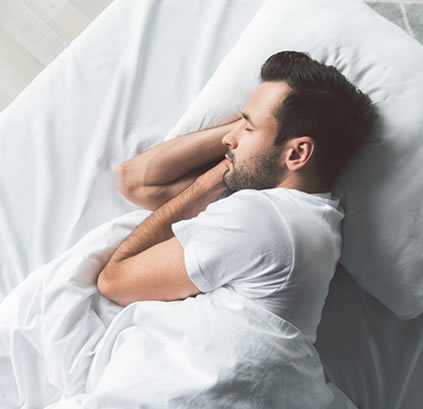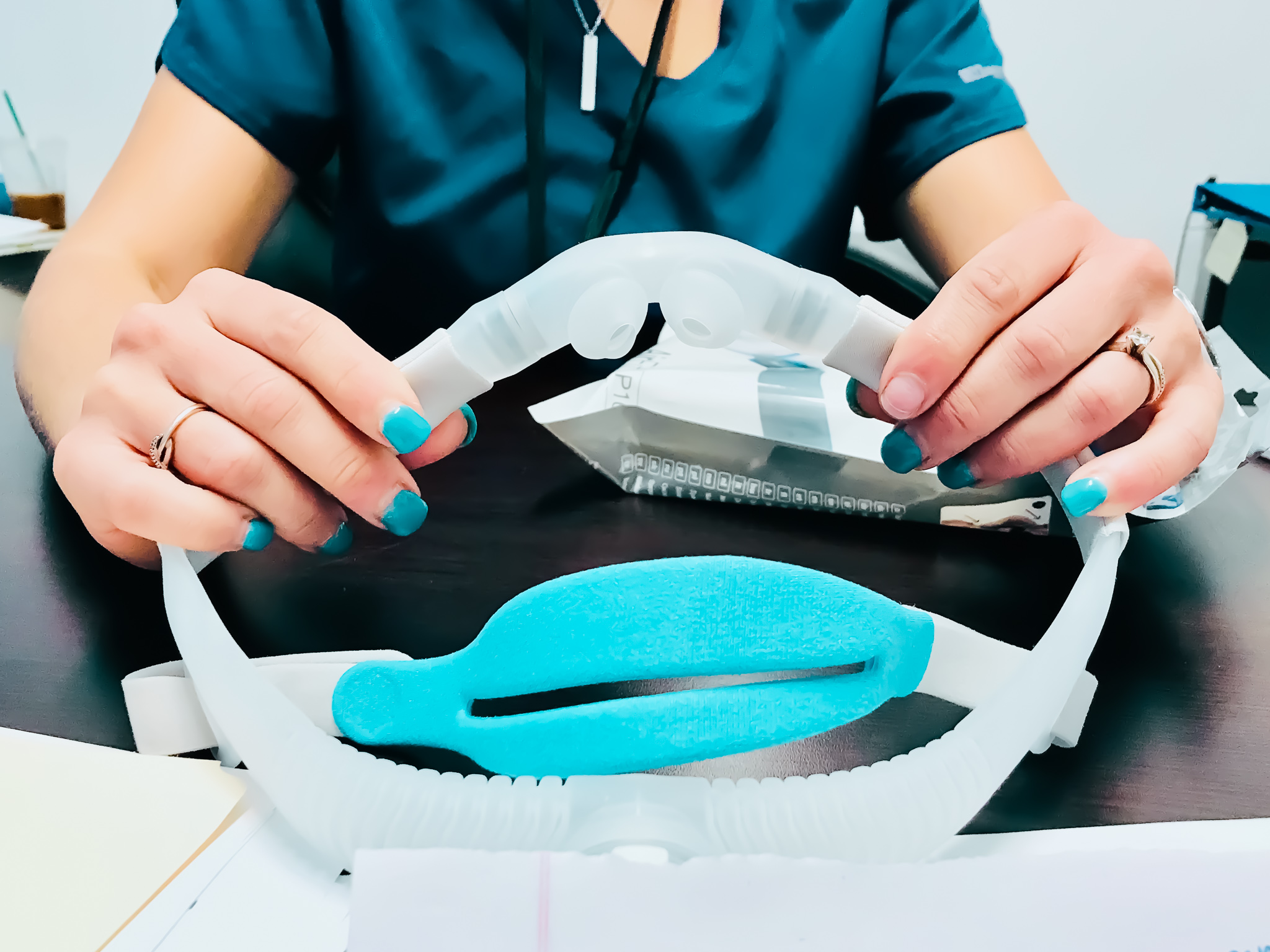About Roncopathy and Sleep Apnea

What are snoring and sleep apnea?
Clínica Eupnea Palamós studies sleep apnea syndrome. It is common in the population, in snoring people, with excessive drowsiness or a bad night’s rest.
It can also occur in people with a history of arrhythmias, heart attacks or headaches. Overweight and poor blood pressure control are also associated with it.
A pulmonologist will perform the medical evaluation and recommend the most appropriate diagnostic study to the person you have consulted. It will issue the report of the medical tests performed and will follow up in the event of a diagnosis of the syndrome.
The possible recommended treatments are:
- Posturals
- Ventilatory devices
- Hygienic sleep measures and advice from a psychologist if necessary
- Review by an otolaryngologist in case of nasal, tonsil or other abnormalities
- Mandibular advancement prosthesis or review by a dentist
- Cardiological examination when the syndrome is severe.
Do you suffer from sleep apnea and/or snoring? At Clínica Eupnea Palamós we work to treat these disorders with professionalism and dedication.

DIAGNOSTIC STUDIES AT CLINIC EUPNEA PALAMÓS
- Continuous nocturnal pulse oximetry : Test used to monitor the oxygenation a person presents during the night or sleep together with heart rate analysis. It is a useful test for the screening of sleep apnea syndrome and for the detection of nocturnal respiratory insufficiency.
- Nocturnal home polygraphy or sleep study : It is a technique that is carried out at home. It consists in the monitoring and recording of cardiorespiratory variables. This is a specific study for cases of snoring, apneas and hypoapneas. During this test, oxygenation, heartbeat, airflow, snoring, and chest and abdominal movements are analyzed.
- Actigraphy : Test necessary for the study of a person’s sleep-wake alternation over hours, days or weeks. It is useful for the analysis of sleep disorders – wakefulness, drowsiness and insomnia.
- CPAP titration : It is a complementary test to the nocturnal polygraph as it manages to determine the optimal pressure to remove apneas and snoring.
What is snoring?
- Snoring is a loud, continuous noise that occurs during sleep due to partial obstruction of the upper airway.
What is sleep apnea?
- Sleep apnea is a condition characterized by temporary pauses in breathing during sleep, which can be caused by either an obstruction (obstructive sleep apnea) or a lack of brain signals to breathe (central sleep apnea).
What are the symptoms of snoring and sleep apnea?
- Symptoms may include loud snoring, pauses in breathing during sleep, daytime sleepiness, fatigue, headaches, among others.
What are the risk factors for snoring and sleep apnea?
- Risk factors may include obesity, smoking, alcohol consumption, anatomy of the airways, among others.
How is snoring and sleep apnea diagnosed?
- Diagnosis is typically made through a polysomnography, which records various functions during sleep such as breathing, body movements, and brain activity.
What treatments are available for snoring and sleep apnea?
- Treatments may include lifestyle changes, use of CPAP (Continuous Positive Airway Pressure) devices, surgery in selected cases, among others.
What tips can I follow to improve snoring and sleep apnea?
- You can try losing weight if necessary, avoid alcohol and sedatives before sleeping, maintain a proper sleep posture, among others.